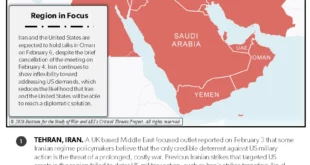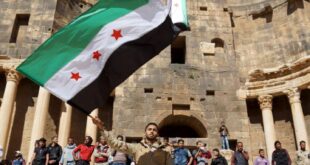BAGHDAD — With concern on the Middle East focused on Lebanon, this week’s visit to Washington by Iraq’s prime minister may offer US policy makers a timely reminder of how deeply troubled their project in Iraq has become.
Nuri Maliki said he will also demand President George W. Bush press Israel to ceasefire against Hizbollah, the premier’s fellow Shiite Islamists in Lebanon, highlighting, too, how closely the region’s problems are interwoven.
“We are all part of this region and the deterioration may affect us,” Maliki said on Saturday.
He denounced Israeli action in Lebanon as “dangerous”.
Maliki begins his first trip outside the Middle East since forming his unity government two months ago by visiting Prime Minister Tony Blair in London on Monday before meeting Bush at the White House on Tuesday and addressing Congress on Wednesday.
Maliki, who calls his outline national reconciliation plan a “last chance” for peace, says he will discuss better security for Baghdad, where a car bomb killed 36 more people on Sunday.
US commanders say more American and Iraqi troops may be deployed in the capital, where a monthlong clampdown has so far had little effect on communal bloodshed, despite their killing last month of Al Qaeda in Iraq leader Abu Mussab Zarqawi.
There was little sign of reconciliation at a first meeting on Saturday to flesh out Maliki’s plan. Many Sunnis stayed away.
Facing elections in November that will determine control of Congress, the Bush administration will be keen to present Maliki’s visit as a mark of progress in Iraq.
US officials are already characterising his sharp criticism of Israel and anger over crimes by US troops in Iraq as signs of a healthy democracy.
But with 100 people killed daily, by UN estimates, senior Iraqis warn the US plan to replace Saddam Hussein’s Sunni dictatorship with a multi-confessional, multi-ethnic democracy is all but dead and the oil-rich state heading for a break-up.
‘Civil war’
“I’m fed up telling people that Iraq is in a bad way,” a senior government official told Reuters privately on Saturday.
“Some senior officials say the media are exaggerating. But if this is not civil war… then I don’t know what is.” Another senior Iraqi government official who has long supported Washington’s goals in the country told Reuters privately last week: “Iraq as a political project is finished.” With Shiite and Kurdish militias turning as violent in some areas as the three-year-old Sunni Arab insurgency, he added that parties were looking at dividing power and resources and carving Baghdad’s seven million people into Sunni and Shiite zones.
US envoy Zalmay Khalilzad, who said earlier this year that Bush had opened “Pandora’s box” by invading Iraq, has also said Maliki has just months to get a grip on sectarian violence.
Some 140,000 mostly American troops are keeping a lid on territorial advances by armed groups but there is growing electoral pressure to bring them home and questions over how far they can prevent the sort of anarchic violence in which millions of Iraqis are arming themselves against their neighbors.
The US strategy is to build up Iraqi forces but US generals note continuing problems with sectarian loyalties among the police. Doubts also persist about the cohesion of the army.
“Maliki’s trip to Washington is all part of the US domestic agenda to put a good face on things for November,” one European diplomat said. “But things are looking really bad.” A senior Western official involved with the Iraqi government confided that he was finding it hard to be optimistic as the new government struggles to gain traction on the violence: “I’m a pessimist,” he concluded, but added he was “refusing to panic”.
 Eurasia Press & News
Eurasia Press & News



